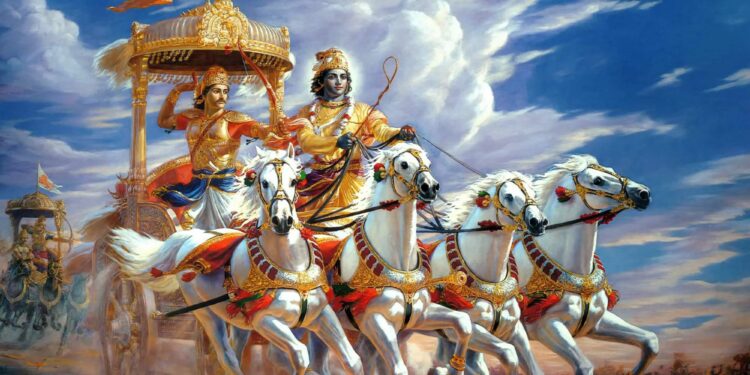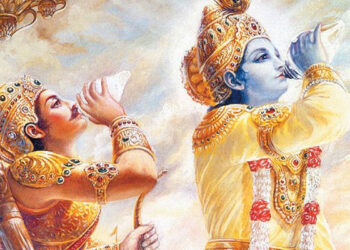TEXT 6
karmendriyāṇi saṁyamya
ya āste manasā smaran
indriyārthān vimūḍhātmā
mithyācāraḥ sa ucyate
SYNONYMS
karma-indriyāṇi—the five working sense organs; saṁyamya—controlling; yaḥ—anyone who; āste—remains; manasā—by the mind; smaran—thinking of; indriya-arthān—sense objects; vimūḍha—foolish; ātmā—soul; mithyā-ācāraḥ—pretender; saḥ—he; ucyate—is called.
TRANSLATION
One who restrains the senses of action but whose mind dwells on sense objects certainly deludes himself and is called a pretender.
PURPORT
There are many pretenders who refuse to work in Kṛṣṇa consciousness but make a show of meditation, while actually dwelling within the mind upon sense enjoyment. Such pretenders may also speak on dry philosophy in order to bluff sophisticated followers, but according to this verse these are the greatest cheaters. For sense enjoyment one can act in any capacity of the social order, but if one follows the rules and regulations of his particular status, he can make gradual progress in purifying his existence. But he who makes a show of being a yogī while actually searching for the objects of sense gratification must be called the greatest cheater, even though he sometimes speaks of philosophy. His knowledge has no value, because the effects of such a sinful man’s knowledge are taken away by the illusory energy of the Lord. Such a pretender’s mind is always impure, and therefore his show of yogic meditation has no value whatsoever.
TEXT 7
yas tv indriyāṇi manasā
niyamyārabhate ‘rjuna
karmendriyaiḥ karma-yogam
asaktaḥ sa viśiṣyate
SYNONYMS
yaḥ—one who; tu—but; indriyāṇi—the senses; manasā—by the mind; niyamya—regulating; ārabhate—begins; arjuna—O Arjuna; karma-indriyaiḥ—by the active sense organs; karma-yogam—devotion; asaktaḥ—without attachment; saḥ—he; viśiṣyate—is by far the better.
TRANSLATION
On the other hand, if a sincere person tries to control the active senses by the mind and begins karma-yoga [in Kṛṣṇa consciousness] without attachment, he is by far superior.
PURPORT
Instead of becoming a pseudo transcendentalist for the sake of wanton living and sense enjoyment, it is far better to remain in one’s own business and execute the purpose of life, which is to get free from material bondage and enter into the kingdom of God. The prime svārtha-gati, or goal of self-interest, is to reach Viṣṇu. The whole institution of varṇa and āśrama is designed to help us reach this goal of life. A householder can also reach this destination by regulated service in Kṛṣṇa consciousness. For self-realization, one can live a controlled life, as prescribed in the śāstras, and continue carrying out his business without attachment, and in that way make progress. A sincere person who follows this method is far better situated than the false pretender who adopts show-bottle spiritualism to cheat the innocent public. A sincere sweeper in the street is far better than the charlatan meditator who meditates only for the sake of making a living.


















